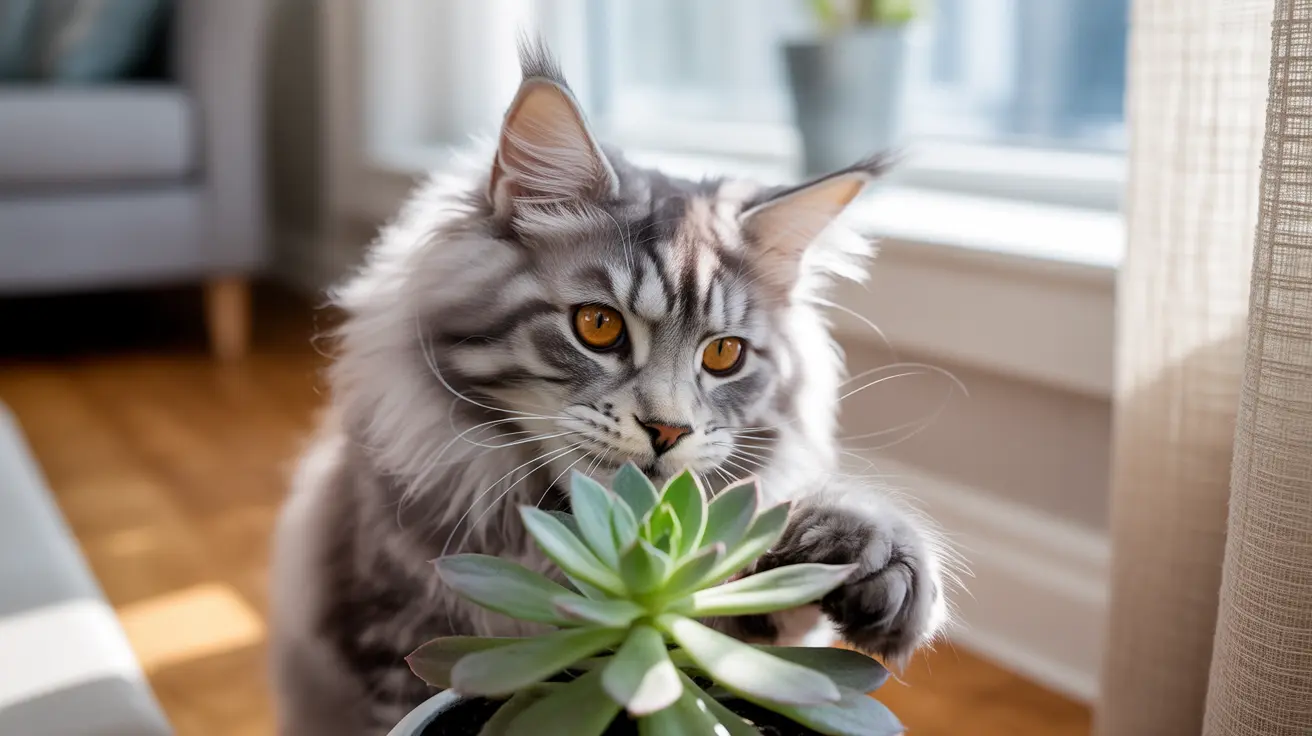Understanding Sedum and Its Safety Profile
Sedum belongs to a large family of succulent plants comprising over 600 species. These hardy plants are popular choices for both indoor and outdoor gardens, known for their attractive appearance and low maintenance requirements. The entire sedum genus, including common varieties like Sedum morganianum (Burro's Tail) and Sedum japonicum, is considered safe for households with cats.
Potential Health Effects of Plant Consumption
While sedum isn't poisonous to cats, it's important to understand that any plant material, when consumed in large quantities, can cause mild digestive upset. This isn't due to toxicity but rather the cat's digestive system processing unfamiliar plant matter.
Common Reactions to Watch For
- Temporary stomach upset
- Mild vomiting
- Brief episodes of diarrhea
- Excessive drooling
Safe vs. Toxic Succulents: What Cat Owners Should Know
Although sedum is safe, many other popular succulents can be dangerous for cats. Here's a quick reference of common toxic varieties to avoid:
- Aloe vera
- Jade plant (Crassula)
- Crown of Thorns
- Kalanchoe
- Snake Plant
- String of Pearls
Creating a Cat-Safe Plant Environment
To ensure your cat's safety while enjoying your plant collection, consider these preventive measures:
- Place plants in hanging baskets or high shelves
- Create dedicated plant rooms that remain cat-free
- Choose only verified pet-safe varieties
- Monitor your cat's behavior around plants
- Keep emergency veterinary contacts readily available
Frequently Asked Questions
Is sedum poisonous or safe for cats to have around the house?
Sedum is completely safe for cats to have around the house. It's classified as non-toxic by the ASPCA and other veterinary authorities, making it an excellent choice for pet-friendly homes.
What symptoms should I watch for if my cat eats sedum or other non-toxic succulents?
While sedum isn't toxic, watch for mild digestive upset including temporary vomiting, diarrhea, or drooling if large amounts are consumed. These symptoms typically resolve on their own but consult a vet if they persist.
Which common succulents are toxic to cats and should be avoided in a pet-friendly home?
Avoid aloe vera, jade plant, kalanchoe, crown of thorns, pencil cactus, and string of pearls. These succulents can cause serious health issues if ingested by cats.
How can I tell the difference between cat-safe succulents like sedum and harmful varieties before buying?
Always research plants before purchasing using the ASPCA toxic plant database or consult with qualified nursery staff. Take photos or note plant names to verify safety before bringing them home.
What steps should I take if my cat eats a potentially toxic succulent plant?
If you suspect your cat has eaten a toxic plant, contact your veterinarian or the ASPCA Animal Poison Control Center immediately. Note the plant species and any symptoms your cat is showing.
Conclusion
Sedum proves to be an excellent choice for cat owners wanting to incorporate succulents into their home décor. While it's reassuring to know that sedum is non-toxic to cats, maintaining awareness about other potentially harmful plants and practicing proper placement and supervision will ensure a safe environment for your feline friends.






